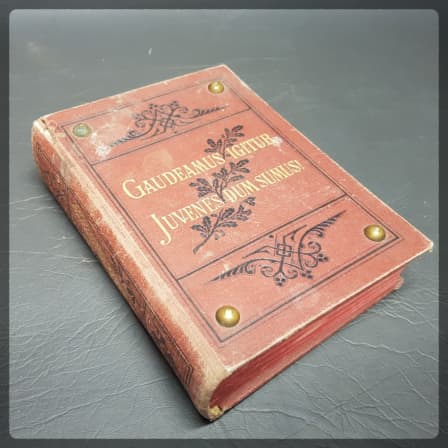


Not long ago Gaudeamus was awarded a laureate in a competition at the festival of Russian Orthodox music ?Yalta-Victoria 2000? in the Crimea for the finest performance of ?Our Father? by Stravinsky. Particular attention is paid to Russian Orthodox sacred music. Gaudeamus performs music of different epochs and styles for mixed a capella choir by both Russian and western composers, ranging from folk songs and American spirituals to Renaissance motets. It is his leadership that has brought Gaudeamus to its present level of excellence as he is responsible not only for its outstanding ensemble but for selecting its repertoire and arrangements of traditional folk songs. The choir was created and has been led by Vladimir Zhivov, a well-known choir conductor and professor of choir conducting. There is even a special ensemble ?Bel Canto? within the choir, and a number of poets and composers. Its name was taken from opening words of the medieval student song ?Gaudeamus igitur, juvenes dum sumus.?-?Let?s be merry, while we are young.? The choir members have always followed the injunction, the witness of their outstanding out-of-choir pursuits you can see in the section 'Photos' below. Gaudeamus consists mostly of students of the BMSTU and other Moscow institutes of higher education, and includes up to 40 members. Instead I'd also use "May the sadness perish", but to me that seems to mean the same, so I wonder why I should change it.Gaudeamus, the chamber choir of the Moscow Bauman State Technical University, with a vast repertoire and long-standing, cherished traditions, has existed for more than 30 years, and is well-known in Russia-especially in its native Moscow, where it has appeared in the major concert halls, but also throughout the former USSR, and in other countries where it has performed on tours. Would "cheery" fit better? Or "merry"? Or "The sadness shall perish" is also a wish - at least the german equivalent of it ("Die Traurigkeit möge zugrunde gehen") is one. Most of these I've never read in an original english text before, only in textbooks if at all. There are so many different translations of it to be found: I'd normally use the german expression "fröhlich" but I don't know what the english equivalent of it is. I had and still have a bit problems finding the right expression for this, though. "rejoice" to me seems to be an almost archaic expression, I only have heard it in very formal contexts.

But "let us be jolly" is an invitation to enter this state.Īnd "gaudere" means "to be happy", so it also is a state of being.


 0 kommentar(er)
0 kommentar(er)
